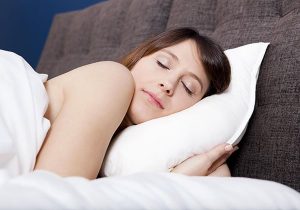 Some medical doctors refer to obstructive sleep apnoea by its more descriptive name of sleep suffocation.
Some medical doctors refer to obstructive sleep apnoea by its more descriptive name of sleep suffocation.
A disorder treated under Castlemaine Smiles Dentist’s General Dentistry, sleep apnoea happens during sleep where the muscles of the tongue and throat relax during sleep and block the airway making is difficult or impossible to inhale.
Think of it this way: If you hold your hand over a vacuum cleaner hose while the vacuum is running, you notice the strained sound of the motor trying to pull air through the hose. Those who have an obstructive sleep disorder experience the same kind of strain while the body is trying to sleep.
Because of their body’s anatomy or physical structures, they tend to snore during sleep. At some point during the sleep cycle, their throat closes shut and they are unable to get air into their lungs. These people eventually arouse enough from sleep that they are able to breathe again.
Their bodies experience periodic bouts of suffocation and highly reduced levels of oxygen throughout the night, putting serious strain on the body.
Sleep suffocation
Sleep suffocation is common and one of the most undiagnosed disorders in modern medicine. Sleep suffocation affects, to varying degrees, 17 percent of adults between the ages of 30 and 69.
People are more likely to have this condition as they grow older and the tissues in the throat start to “sag” with time, or as they gain weight and fatty deposits build up in the throat.
Children experiencing these disorders are at a high risk of developing conditions like Attention Deficit Disorders (ADD), hyperactivity, bed wetting and aggressive behaviours. Any sign of snoring in a child should be taken very seriously.
Why treat a sleep-related breathing disorder?
If you are suffering from daytime fatigue and sleepiness this question doesn’t need to be asked! However, some people with sleep disorders notice few disturbances in their life that would motivate them to seek treatment. People with untreated obstructive sleep disorders have much higher incidences of other serious medical symptoms and conditions.
Facts about Sleep Apnoea
- 30 percent of people with coronary artery disease have obstructive sleep apnoea
- 45 percent of people with hypertension have obstructive sleep apnoea
- 50 percent of people with congestive heart failure have obstructive sleep apnoea
- 60 percent of people suffering from stroke have obstructive sleep apnoea
- 80 percent of people with drug-resistant hypertension have obstructive sleep apnoea
Diagnosing Sleep Apnoea
Whilst he only true way to rule out sleep apnoea or sleep suffocation is with a hospital or home based sleep study called a polysomnogram (PSG), if you have any of these symptoms you should seek medical attention.
Living With Sleep Apnoea
- If you think you have this disorder, seek medical attention urgently.
- Please be careful driving any distance longer than a half hour’s drive. You have a significantly increased chance of an accident and are a worse traffic risk than a drunk driver!
- In addition, if you think you have this disorder, refrain from drinking alcohol several hours before bedtime since alcohol relaxes the throat and makes this condition worse.
- Try to sleep on your side as much as possible, because sleeping on your back can worsen this disorder.
Call us on (03) 5472 1377 or book your appointment online today.


